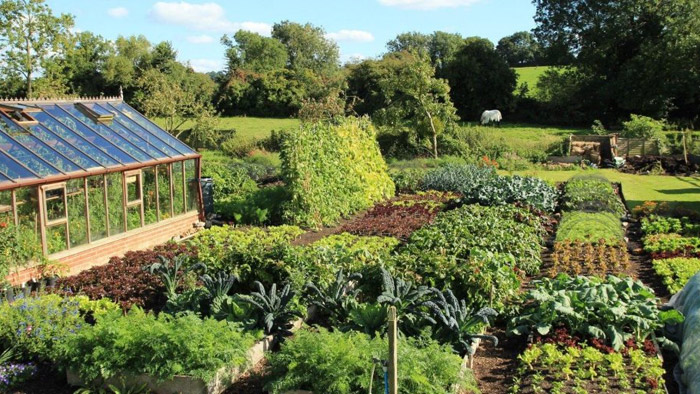While the message still does not resonate with all of us, more and more people are beginning to grow food close to home. We are waking up to the fact that the cheap and abundant oil that fuels our agricultural and transportation industries is rapidly coming to an end. That means things must begin to change.
Those of us in our sixties remember well how nearly everything we ate we raised ourselves. My father used to boast to his city siblings that the only things he needed to import to his farm to keep his family alive was salt and sugar. That was stretching it a bit, I am sure, but the point was made: we were quite food secure.
How different things are today. Various studies have been done to determine how much food is present in our cities at any point in time. In most cases, it has become obvious that a major transportation disruption could leave us with only enough food to feed the population a few days – at best a week.
Once Ruth and I started raising our family, it became clear that my wife Ruth was intent on raising food for our children. Meanwhile, I got caught up in what is commonly referred to as “cosmetic gardening.” I really enjoyed creating a wash of colour as I experimented mostly with perennial flowers. At one point I could boast of 99 varieties in my backyard. What a delight it was!
Over the years, Ruth and I engaged in a gentle tug-of-war: Ruth claiming land for food production and I, for my beloved flowers. Sometimes, the results depended on who got out there first. And, of course, I had the backing of my friends in the local garden club, whose members also focused almost entirely on cosmetic gardening. Ruth was backed mostly by her desire to feed our four boys healthy, home-grown food – imitating her mother’s role a generation earlier.
I supposed that once our children had left home I would be able to claim more and more land for cosmetic gardening. But, somewhere along the way the focus of my attention began a transition process. As I began reading more and more about our modern food industry, I came to the conclusion that its bottom line was not providing healthy food but a healthy bottom line.
So, gradually, I began joining Ruth more frequently in her vegetable garden. I became serious about composting, raised beds and vertical gardening and began taking greater delight in the bounty of the harvest each summer.
So you might say that Ruth and I are “transition gardeners” at this point. I still plant flowers with Ruth’s help, but I am increasingly excited about the organic vegetables we can grow together on the other side of the garden.
My call would be for the many people who are so good at cosmetic gardening, to consider a similar transition toward using some of their garden space to grow food. It is the way of the future.




